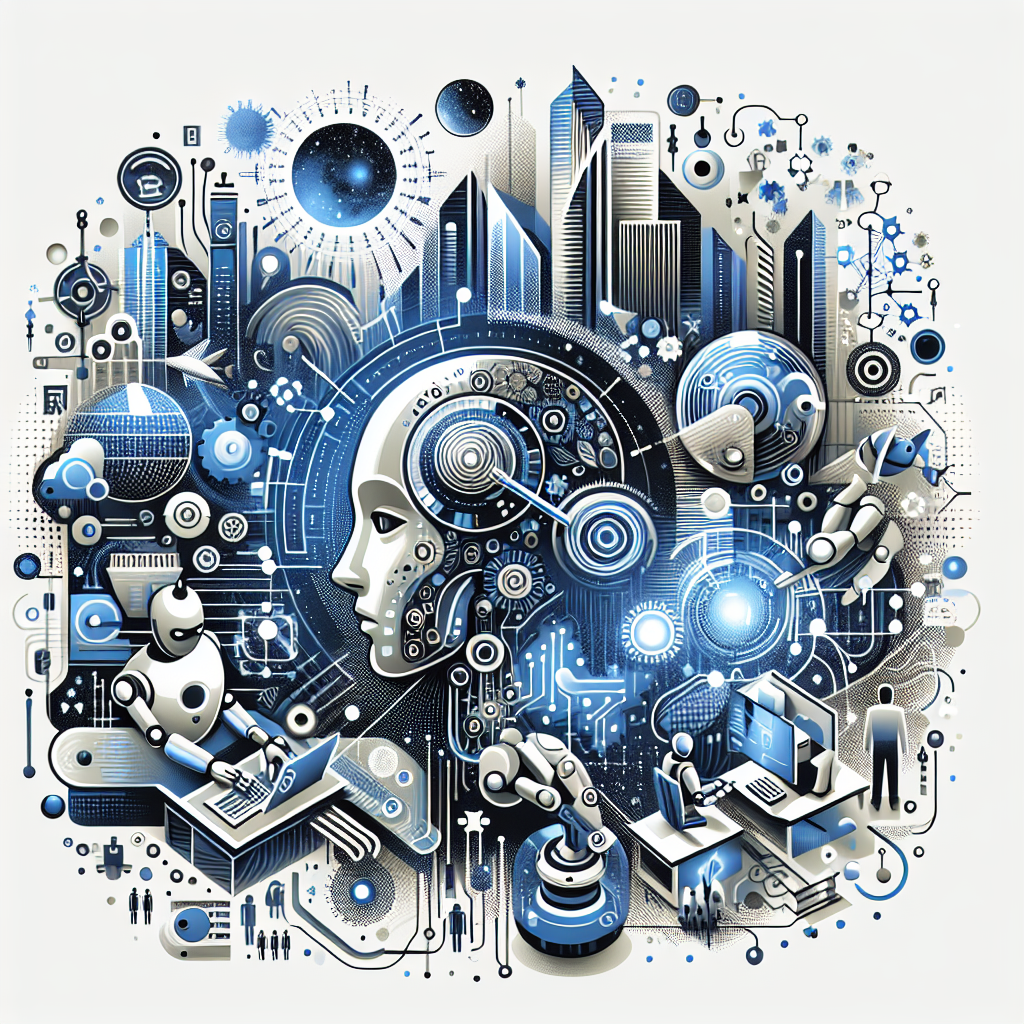Demystifying AGI: Understanding the Future of Artificial Intelligence
Artificial General Intelligence (AGI) is a term that has been making waves in the field of artificial intelligence (AI) in recent years. As the next frontier in AI research, AGI holds the promise of creating machines that can think and learn like humans, with the ability to perform a wide range of tasks across different domains. But what exactly is AGI, and how does it differ from other forms of AI? In this article, we will delve into the world of AGI, exploring its potential impact on society and addressing some common misconceptions about this powerful technology.
What is AGI?
AGI refers to a type of artificial intelligence that possesses the ability to understand and learn any intellectual task that a human being can. In other words, AGI systems are not limited to specific tasks or domains, but instead have the capacity to perform a wide variety of tasks with the same level of proficiency as a human. This is in contrast to narrow AI, which is designed to perform specific tasks within a limited domain, such as speech recognition or image classification.
The ultimate goal of AGI research is to create machines that can think, reason, and learn in a general way, similar to how humans do. This would involve developing algorithms and architectures that are capable of processing complex information, making decisions, and adapting to new situations in a flexible and intelligent manner. While narrow AI systems excel at specific tasks, AGI systems have the potential to outperform humans in a wide range of cognitive tasks, from problem-solving to creativity.
Why is AGI important?
AGI has the potential to revolutionize virtually every aspect of society, from healthcare and education to transportation and entertainment. By creating machines that are capable of understanding and learning like humans, AGI has the power to automate complex tasks, improve decision-making processes, and accelerate scientific discovery. In healthcare, for example, AGI systems could help doctors diagnose diseases more accurately and develop personalized treatment plans for patients. In education, AGI could revolutionize the way students learn by providing personalized tutoring and feedback based on individual learning styles.
AGI also has the potential to impact the economy by increasing productivity, creating new job opportunities, and driving innovation. By automating routine tasks and freeing up human workers to focus on more creative and strategic activities, AGI could boost economic growth and improve overall living standards. However, the widespread adoption of AGI could also lead to job displacement and income inequality, as machines take over tasks that were previously performed by humans. It will be crucial for policymakers to address these challenges and ensure that the benefits of AGI are shared equitably across society.
Common misconceptions about AGI
Despite its potential benefits, AGI is often misunderstood and surrounded by misconceptions. One common misconception is that AGI is synonymous with superintelligence, or machines that are vastly more intelligent than humans. While superintelligence is a possible outcome of AGI research, it is not the primary goal of AGI development. The focus of AGI research is on creating machines that can think and learn like humans, rather than surpassing human intelligence.
Another misconception is that AGI will lead to the rapid automation of all human jobs, resulting in mass unemployment. While it is true that AGI has the potential to automate many tasks currently performed by humans, it is unlikely to replace all human workers in the near future. Instead, AGI is more likely to complement human workers by taking over routine tasks and freeing up time for more creative and strategic activities. It will be important for society to adapt to these changes by investing in education and training programs that prepare workers for the jobs of the future.
Frequently Asked Questions about AGI
Q: Will AGI have consciousness and emotions like humans?
A: The question of whether AGI will possess consciousness and emotions like humans is a topic of debate among AI researchers. While AGI systems may exhibit behavior that appears to be conscious or emotional, it is unlikely that they will have true consciousness or emotions in the same way that humans do. AGI systems are designed to simulate human cognitive processes, but they do not have the same subjective experiences or self-awareness as humans.
Q: What are the ethical implications of AGI?
A: The development of AGI raises a number of ethical considerations, including concerns about privacy, bias, and accountability. AGI systems have the potential to impact society in profound ways, and it will be important for researchers and policymakers to address these ethical issues to ensure that AGI is developed and deployed responsibly. This may involve creating regulations and guidelines for the use of AGI, as well as implementing safeguards to prevent misuse or abuse of the technology.
Q: When will AGI be achieved?
A: The timeline for achieving AGI is uncertain, as it depends on a variety of factors, including technological progress, funding, and research breakthroughs. Some experts predict that AGI could be achieved within the next few decades, while others believe that it may take longer. Regardless of the timeline, it is clear that AGI has the potential to revolutionize society in profound ways, and researchers are working tirelessly to unlock the full potential of this powerful technology.
In conclusion, AGI represents the next frontier in artificial intelligence research, with the potential to create machines that can think and learn like humans. While AGI holds great promise for improving society and driving innovation, it also raises important ethical and societal considerations that must be addressed. By understanding the capabilities and limitations of AGI, we can harness the power of this transformative technology to create a more prosperous and equitable future for all.

